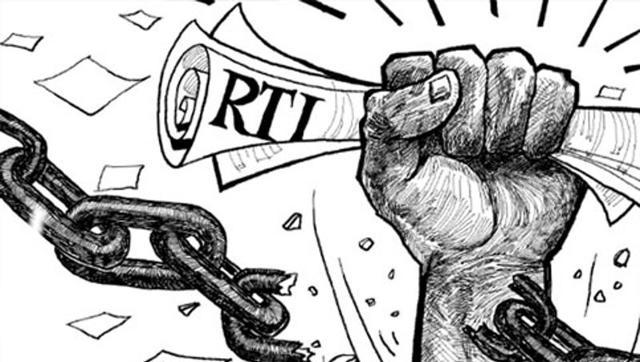
Post – independence, the Right to Information Act 2005, is a landmark legislation in India, which empowers the citizens by streamlining the right to information and brings the right in action. However, recently the provisions of the Act have been diluted by Information Commissioners especially by the scant and rare use of penal provisions u/s 18.
The question I am dealing with, in this present article, is whether there is a bar on complaints under S.18, under the Act, without availing the remedies under section 19 (1) and 19 (3) of the Right to Information Act 2005?
If one files an RTI application under section 6 (1) before any public authority and if the public information officer (PIO) does not respond within 30 days, then, what are the remedies under the Act? At this stage, there are two remedies available, the first one is filing a first appeal u/s 19 (1) and the second remedy is filing a complaint u/s 18.
Next, if a first appeal is filed under section 19 (1) and one gets a favourable order and the PIO does not comply with the order, denying information, then what are the remedies? Again, one has two remedies, first one is to file a second appeal under section 19 (3) or file a complaint under section 18 before the SIC / CIC.
Now, the problem is I have come across orders of the State Information Commissioner, Maharashtra, Brihanmumbai, dismissing complaints u/s 18 on ground of non – maintainability. The ground taken by the SIC in dismissing the ‘direct’ complaints u/s 18 is that no ‘direct’ complaints can be entertained without availing the first or second appeal routes under section 19 (1) and section 19 (3). The term ‘direct’ is used to denote that these are complaints u/s 18 without availing the first appeal or second appeal routes under section 19 (1) and section 19 (3) respectively. Dismissals of such complaints u/s 18 is sheer frustration of the Act and the applicant and of the very right guaranteed by the Act, apparently, providing the erring public information officers, a long rope.

These dismissals are summary in nature without a hearing, citing two judgements of the Honourable Supreme Court of India in Civil Application No.10787 & 10788 of 2019 (CIC vs State of Manipur, AIR 2012 SC 864), signed by the Under Secretary to the SIC, Brihanmumbai.
The cited Apex Court judgement nowhere supports the argument of the SIC, Brihanmumbai, dismissing the ‘direct’ complaints. The Delhi High Court in J.K.Mittal vs Central Information Commission and the Karnataka High Court in D. Naranaswamy vs Karnataka Information Commissioner and Anr. (WP No.48338 of 2012) both have interpreted the Apex Court judgements leaving no room for any ambiguity as to the conclusion that S.18 and S.19 are distinct remedies under the Act. There is nothing in the Apex court judgements which even remotely leads to the conclusion that availing remedy u/s 19 is a precondition before availing the remedy of complaint u/s 18. The Apex court judgement has, however, held that the commissioner cannot order provision of information u/s 18 and can only order for penalty. The relevant portion of the Apex Court judgement is reproduced below;
37. We are of the view that Sections 18 and 19 of the Act serve two different purposes and lay down two different procedures and they provide two different remedies. One cannot be a Substitute for the other.
The said dismissal of the ‘direct’ complaints u/s 18 by the SIC, Brihanmumbai, do not concur with the ratio of the Apex Court judgement, in fact, is in contradiction to the settlement of the issue by the Apex Court. Considering the fact that the SIC cannot review the orders, adds to the woes of the applicant leaving him with the only remedy of challenging the orders before the High Court, which is not possible for most and unnecessarily adds to the ever increasing dockets of the High Courts. It is high time that the State Chief Information Commissioner/s and CIC’s deal with these issues seriously, as the Act is for facilitation of provision of information and not a mechanism for PIO’s to skirt their duties and responsibilities both under the Act and other laws with impunity.

Leave a comment